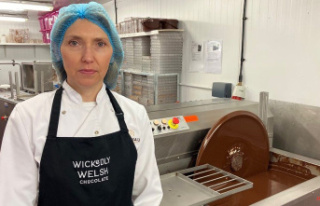Law chiefs demand that the act of "downblousing", which is taking photos without consent, be made illegal in England or Wales.
The new proposals will also protect victims of abuse of intimate images and revenge porn through the modification or repealing current laws.
The Law Commission reviews and updates legislation. They are also calling for a ban to share pornographic deepfakes without consent.
The government stated that it would take into consideration the suggestions.
Acts such as voyeurism and upskirting are currently criminalized in England and Wales. However, the recommendations could be expanded to include photographing a woman’s breasts, cleavage, or bras.
Justice Minister Naomi Long, who has strengthened Northern Ireland's law in this area, said to the BBC: "New offenses have been created for downblousing, upskirting and cyber-flashing, where those convicted will face a maximum of 2 years imprisonment.
She stated that she believes the new provisions will provide greater protection for Northern Ireland and will have a tangible and positive impact on victims.
Since 2010, upskirting is prohibited in Scotland. The Sexual Offences (Scotland Act 2009 outlaws all sexual crimes and was amended to include upskirting within a wider definition of voyeurism.
Since 2011, the number of prosecutions for this crime in Scotland has remained low. There have been an average of three cases per year between 2011-2018.
Many victims of intimate images abuse have shared their distressing experiences.
Emily Hunt was captured naked in a hotel bed in 2015 while she was still unconscious. She spent five years campaigning to bring her perpetrator to justice.
She said, "It totally derail my life."
Ms Hunt was told by the prosecution that the man's actions were legal, but the law would have to be clarified by Court of Appeal.
"They said it wasn't against the law to film someone naked in a room with them. I began to campaign, in an effort to inform politicians that they need current laws.
"The current patchwork of criminal offenses has not kept up with the pace of technology."
The sophisticated technology makes it possible to create pornographic videos using advanced technology. Videos can be altered so that the original face of the victim is replaced by another person's. You can also "nudify” photos with tech.
Law gaps allow perpetrators to evade prosecution for acts that cause extreme distress or long-term harm to victims. The commission stated that victims should be granted anonymity for their entire lives.
Folami Prehaye was victim to revenge porn after her ex-partner Thomas Samuel posted explicit photos of her online.
He was sentenced to a suspended six-month sentence for harassment and distribution of indecent images.
Folami, like Emily, is now a campaigner for change and has founded Victims of Image Crime.
She told BBC that she was a first-hand witness and felt it was important for any proposed changes to be influenced by the voices of those who had fought for justice.
"My hope is that Law Commission covers 'threats of sharing', anonymity to all experiencers, and the need to them not prove intent."
These are the key points:
Professor Clare McGlynn from Durham University said that the Law Commission's suggestions are a welcome move - particularly making the sharing or taking of intimate images without consent a base offense.
She stated that "the breach of privacy or consent is the fundamental wrong,"
Reforms would make it easier for people to be prosecuted for more behaviors, and give harsher sentences for those who commit the most serious abuse.
Professor McGlynn says that the recommendations were "long overdue".
"We need to take immediate action, because politicians and the government could have taken steps years back and prevented thousands of young people being hurt by intimate image abuse.
"And that's the thing we should remember - every single day that we don't introduce these new laws people, particularly young women, are being hurt, and some are life-threatening."
Professor Penney Lewis, the law commissar for criminal law said that sharing intimate images of someone without their consent can be extremely distressing and dangerous for victims. They often become scarred for life.
"The current laws regarding the taking and sharing of sexual or nude pictures of someone without their consent is inconsistent. They are based on a narrow range of motivations, and don't cover disturbing or abusive new behaviors that have emerged in the smartphone age."
Kate Isaacs, the founder of Not Your Porn, stated that it does not appear like anyone is profiting from image-based sexual abuse or platform responsibility. This is very worrying.
"Assisting with the installation of equipment like a hidden camera can be very helpful, but I have worked on many cases with women who were secretly recorded without their permission and then uploaded to a platform that allowed someone to make a profit."
A spokesperson for the government stated that "nearly 1000 abusers were convicted since we outlawed revenge porn."
"With the Online Safety Bill we will force internet companies to better protect users from a variety of image-based abuses, including deepfakes.
"But we asked for the Commission's assistance to determine if the law could be strengthened to ensure public safety.
"We will review its recommendations carefully and respond in due time."
Follow Shiona McCallum @shionamc












